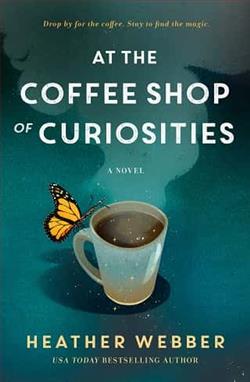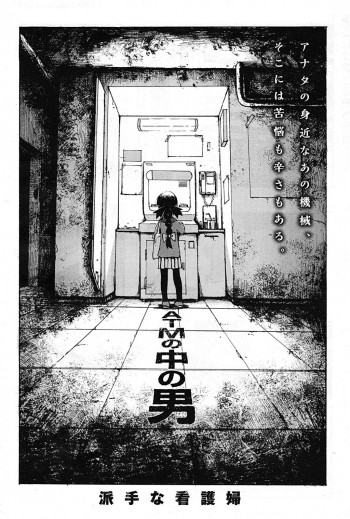In her latest novel, At The Coffee Shop of Curiosities, Heather Webber weaves a poignant tale of loss, healing, and the transformative power of community. Set against the backdrop of the quaint beachside town of Driftwood, Alabama, the story follows Ava Harrison, a woman grappling with the aftermath of her ex-boyfriend's sudden death. When she receives an unexpected job offer as a live-in caretaker for an eccentric old man and his cantankerous cat, Ava seizes the opportunity to escape her past and embark on a new chapter in her life.
From the outset, Webber's writing captivates with its lyrical prose and vivid imagery. The town of Driftwood is not merely a setting; it becomes a character in its own right, with its charming coffee shop, Magpie’s, serving as the heart of the narrative. The shop, run by the effervescent Maggie Mae Brightwell, is a sanctuary for those seeking solace and connection. It is here that the themes of community and healing are explored in depth, as both Ava and Maggie navigate their respective griefs.
Ava's character development is particularly compelling. Initially portrayed as a woman paralyzed by fear and regret, her journey towards self-discovery is both relatable and inspiring. Webber skillfully illustrates Ava's internal struggles, allowing readers to empathize with her hesitations and fears. As she immerses herself in the rhythms of Driftwood and forms connections with its residents, Ava gradually learns to confront her past. This transformation is not instantaneous; rather, it unfolds organically, making her eventual acceptance of change feel authentic and earned.
On the other hand, Maggie Mae Brightwell serves as a vibrant foil to Ava. While she exudes energy and positivity, her character is layered with complexity. Beneath her cheerful demeanor lies a profound sense of loss—her mother’s absence looms large, shaping her actions and motivations. Maggie’s struggle to balance her responsibilities with her emotional turmoil resonates deeply, highlighting the theme that grief can manifest in various forms. Webber deftly explores how both women, though seemingly different, are united by their shared experiences of loss and regret.
The relationship between Ava and Maggie is one of the novel's strongest elements. Their bond evolves from initial wariness to a deep friendship, underscoring the importance of connection in the healing process. As they share their stories and support one another, readers witness the profound impact that friendship can have on personal growth. Webber's portrayal of their relationship is both heartwarming and realistic, capturing the nuances of human connection in times of vulnerability.
Another significant theme in the novel is the idea of letting go. Both Ava and Maggie must confront their pasts to embrace the future. Ava's journey is marked by her struggle to move beyond her fears, while Maggie grapples with the memories of her mother that both comfort and haunt her. Webber emphasizes that holding onto the past can hinder personal growth, and the act of letting go is essential for moving forward. This theme resonates universally, making the story relatable to anyone who has faced loss or change.
The novel also delves into the concept of finding one's place in the world. Ava's decision to leave her old life behind in search of a new beginning reflects a desire for belonging that many readers will find familiar. Driftwood, with its quirky inhabitants and enchanting coffee shop, symbolizes a safe haven where both Ava and Maggie can rediscover themselves. The community's warmth and acceptance serve as a reminder that sometimes, the waves of change can lead us to where we truly belong.
Webber's ability to blend elements of magical realism with heartfelt storytelling is another highlight of the novel. The coffee shop, with its curious artifacts and whimsical atmosphere, adds a layer of charm that enhances the narrative. This magical quality serves as a metaphor for the unexpected surprises life can offer, encouraging readers to remain open to new possibilities. The interplay between the ordinary and the extraordinary enriches the reading experience, making it both enchanting and thought-provoking.
In comparison to other contemporary novels that explore similar themes, such as The Midnight Library by Matt Haig or The Bookish Life of Nina Hill by Abbi Waxman, Webber's work stands out for its emphasis on community and the healing power of friendship. While Haig's narrative delves into the concept of alternate lives and choices, and Waxman's story focuses on personal identity and belonging, Webber's novel beautifully intertwines these elements with a strong sense of place and connection. The result is a story that feels both intimate and expansive, inviting readers to reflect on their own lives and relationships.
Overall, At The Coffee Shop of Curiosities is a beautifully crafted novel that resonates on multiple levels. Heather Webber's exploration of grief, healing, and the importance of community is both timely and timeless. The characters of Ava and Maggie are relatable and well-developed, making their journeys of self-discovery compelling and heartfelt. With its enchanting setting and rich themes, this novel is sure to leave a lasting impact on readers, encouraging them to embrace change and cherish the connections that shape their lives.
In conclusion, if you are looking for a story that combines emotional depth with a touch of whimsy, At The Coffee Shop of Curiosities is a must-read. It is a reminder that while the past may shape us, it is our choices in the present that define our future. This novel is not just about moving on; it’s about finding the courage to start anew, and sometimes, that journey begins with a cup of coffee and a little curiosity.
























Reviews 0
Post a Reviews: